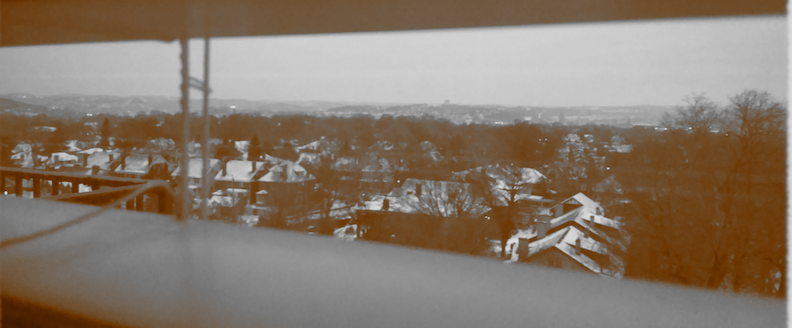I just came home from visiting a literary theory and cultural studies graduate seminar at Carnegie Mellon University. I went to Pittsburgh — not so far from where I live in Cleveland — to talk about my book on French Theory, but I ended up talking about my life, my experience in the academy, and my “career.”*
The seminar was taught by Jeff Williams, an English professor who I’ve been in touch with for fifteen years. We’re in pretty different fields, and a generation apart in age, but we’ve shared this odd interest in writing critically about academic culture. It’s a weird, great feeling to be around like-minded academics, and to get reminded that there’s solidarity in specialization. After you work on your tiny specialized research project for a long time, you can start to feel increasingly closed in on yourself. Then it’s nice to be reminded that solitude is just one moment in a thought process.
Anyway, in Jeff’s seminar, I tried to explain how I came to work in France. I explained that a lot of French “theory” had actually produced by this particular Philosophy Department (at Paris 8), and I explained that I’d come to write about it as an institution permeated by utopianism and ambivalence (not to mention disciplinary masculinism and a complex relation to the postcolonial world).
After I had gone on extemporaneously for a while, the room felt a little hushed, because it was eight at night. So I asked if we could go around and have each person ask a question. (I was afraid that not everyone would speak if we didn’t have something structured.) And people asked such great questions, it turned out, that I wanted to write them up here, to remember them, and honor them a little.
Here they are:
- How do you collect your data? Who did you talk to?
- Coming back to this country from France, what’s your opinion of the U.S. system?
- What did you teach in South Africa?
- How does anthropology relate to literary studies?
- What’s the connection between philosophy in France and theory in the USA?
- You do ethnography — what do you make of how ethnography fits into cultural studies?
- What’s your writing process for your book?
- We heard a lot about your ambivalence. Where’s your hope and positive investments?
- You’ve been in three very different higher education systems — France, USA, South Africa — what are French and South African universities like?
- What do you still idealize?
- How do you position yourself in academic space? Where do you fit in?
- Who is your audience? Do you intend to suggest a remedy to ambivalence?
- What surprised you in South Africa? In France?
- You criticize the places that you inhabit in academia. What happens when you’re negative about your own institutions? What are the implications of that for you?
(All these are paraphrased from my notes.)
Some of these are just really interesting comparative questions that I wouldn’t have thought of. Some bring up points that have a lot of existential stakes for me. And some just remind me that any time you try to talk outside of your field, you partly need to explain the basics of your field. (What is ethnography anyway?)
I couldn’t really answer all these questions (without writing another book probably), so I felt like I had been given a gift I couldn’t entirely reciprocate.
At the same time, there were more questions I had wanted to ask the class — questions about the feelings that go with theory and academic life, mostly. They were things like:
- What are things about academic life that surprise you? What seems logical or illogical about university institutions?
- What’s it like to be a graduate student at Carnegie Mellon? What do you make of “theory” in literary studies?
- Have you ever had a thought you couldn’t express? Or (conversely) have you encountered academic texts you couldn’t make sense of?
- What’s your experience of the relationship between academic texts and everyday life? When does academic writing speak to your life and when does it feel disconnected?
Next time I do something like this, I’ll have to leave more time for more discussion of this sort of theoretical consciousness…
* What is a career but a debatable interpretation of a series of biographical accidents?
